DAY 1, 20 August 2019
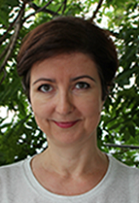
ZUZANA VATRÁĽOVÁ
Head of Office, the International Organization for Migration (IOM) in the Slovak Republic
Zuzana VATRÁĽOVÁ has served as the Head of the IOM Office in the Slovak Republic since 2004. In 2003, she worked at IOM as a coordinator of the information campaign on Preventing Human Trafficking in Slovakia. From 1997 to 2002, she worked as a journalist for BBC Bratislava and London. Prior to that, she had been a project manager at the National Agency for Development of Small and Medium Enterprises (NADSME) and she had also worked at the Ministry of Foreign Affairs of the Slovak Republic. She graduated in Journalism from the Faculty of Arts at Comenius University in Slovakia, and accomplished postgraduate studies at the Karol Rybárik Institute of International Relations of the Law Faculty at the Comenius University.
Opening of the seminar
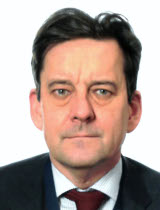
Ola Henrikson
Director, International Organization for Migration (IOM) Regional Office for the European Economic Area, the European Union and NATO, Belgium
Ola HENRIKSON is the Regional Director of International Organization for Migration (IOM)’s Regional Office for the European Economic Area, the European Union and NATO. Ola has substantial knowledge of global and EU migration issues stemming from more than 25 years of experience in the asylum and migration sector at the national and international levels. Prior to joining IOM in 2019, Ola was the Director General for Migration and Asylum at the Swedish Ministry of Justice. He has also served in several executive positions, including Director of the Department for Migration Policy in the Swedish Ministry of Foreign Affairs. He also headed the Swedish Delegation in the Strategic Committee on Immigration, Frontiers and Asylum (SCIFA) of the Council of the European Union from 1999 to 2018. Other international assignments include the World Economic Forum and the Global Commission on International Migration. Ola holds a LL. M. from Stockholm University.
Topic presented: Migratory trends in and outside the EU
The lecture highlights key facts and figures about global migratory trends and looks at the (future) migration situation in Europe. Ola stresses the reasons why most migrants move across the borders and how they contribute to the world economy. He mentions challenges that free movement in Europe faces nowadays and describes main routes of irregular migration into the EU. He summarizes EU’s internal and external actions in the field of migration since 2011 (including the final Progress Report on the Implementation of the European Agenda on Migration from March 2019) and gives examples of IOM’s support to the EU in this regard.

Giuseppe De Giorgi
Admiral (r) and former Chief of Staff of the Italian Navy, Italy
Admiral Giuseppe DE GIORGI is an Italian Admiral and former Italian Chief of Navy. As Chief of Staff of the Navy between 2013 – 2016, he directed a 5.7 billion Euro expansion of the Italian Navy to include the construction of an amphibious ship, ten frigates, a logistics vessel and 2 special operations stealth vessels. He was the Commander of the Italian cruiser ITS Vittorio Veneto from 1997 to 1999 before serving as Commander of the Maritime Task Force of the United Nations Interim Force in Lebanon (UNIFIL) in 2006 for which he received the “Military of the Year” award at the Smithsonian National Air Museum in Washington, D.C. A year after retirement from the highest command in the Italian Navy, Admiral Giuseppe de Giorgi is now assisting non-governmental organization Sea Shepherd and Gabonese authorities to stop illegal, unreported and unregulated (IUU) fishing off the coast of Central West Africa within Operation Albacore.
Topic presented: The law of the sea and boat migration in the Mediterranean: securitisation of search and rescue
The lecture seeks to shed more light on the current situation in the Mediterranean Sea from the international law perspective. Giuseppe explains fundamental principles and elements of the law of the sea: the duty to rescue persons in distress at sea, granting humanitarian treatment to the survivors, and delivering survivors to a place of safety. He focuses also on relation between sovereignty of a state and search and rescue (SAR) guidelines as well as on the role of non-governmental organisations in SAR efforts. He demonstrates how interpretation of the law changes with the popular sentiment on what happened in the Mediterranean before, during and after Italian search and rescue operation Mare Nostrum.
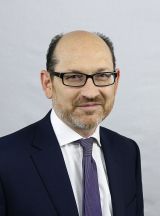
Nicolas Rollason
Partner and Head of Immigration Department, Kingsley Napley LLP, United Kingdom
Nicolas ROLLASON is a partner and head of Business Immigration at London-based law firm Kingsley Napley LLP. He advises on all areas of United Kingdom immigration and nationality law and has particular expertise in providing strategic advice to businesses on their global immigration needs. He has over 20 years’ experience in advising corporations and individuals, providing strategic advice on UK and global immigration and citizenship solutions and often advising in the most complex of cases. He is a recognised expert in EU immigration law and has litigated key test cases before the European Court of Justice. He is listed as a leading figure in Chambers UK and The Legal 500, International Who’s Who of Corporate Immigration Law, The Best Lawyers in the United Kingdom and the Citywealth Leaders List. He is listed in Who's Who Legal as a Thought Leader in Corporate Immigration, 2019. He is regularly consulted by the UK immigration authorities on proposed changes to UK immigration rules and policy and is a regular press commentator, conference speaker and contributor to immigration publications. He has given evidence to the UK Parliamentary Home Affairs Select Committee on skilled migration and is a former Rapporteur for the European Commission’s Annual Free movement report. He has been a consultant to the OECD and the ILO on migration matters. He is currently Secretary of the International Bar Association’s Immigration and Nationality Committee. Nicolas holds a degree in Modern History from the University of Oxford and a Masters in Public Administration from the London School of Economics and Political Science.
Topic presented: Populism, politics and attitudes to immigration
The lecture points out how populism and attitudes to immigration translate into populist parties success. Nicolas provides a brief definition of populism, structural reasons for its origin and rise, especially when it comes to far-right and anti-immigration populism. He debates why both of them are a threat to the liberal democracy and if attitudes to immigration in the United Kingdom and Europe as such are changeable. In the end he suggests possible responses and ways out of far-right and anti-immigration populism which seems to be and continue to be relatively successful at EU level and among EU Member States.
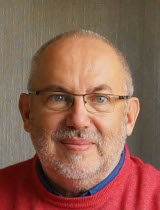
Boldizsár Nagy
Associate Professor, Central European University
Boldizsár NAGY is an Associate Professor at Central European University. Besides the uninterrupted academic activity both at the Eötvös Loránd University (since 1977) and the Central European University (since 1992) he has been engaged both in governmental and non-governmental actions. He acted several times as expert for the Hungarian Ministry of Foreign Affairs, the Council of Europe and UNHCR and participated at several inter-governmental negotiations. He is a member of the editorial board of the International Journal of Refugee Law and of the European Journal of Migration and Law. He is a co-founder and editor of the on-line Refugee Law Reader. His teaching venues include Beijing, Brussels, Geneva, Moscow, and New York. More than two dozen books were co-authored and/or edited by him. He read law and philosophy and received his PhD at the Eötvös Loránd University in Budapest and pursued international studies at the Johns Hopkins University SAIS Bologna Center. His website is: www.nagyboldizsar.hu
Topic presented: Migrants’ human rights and their vulnerabilities
Based on illustrative examples, the lecture focuses on nationality as the core cause of migrants’ vulnerability together with exit and entry conditionality embodied in borders. Boldizsár further discusses the right to move and settle freely as the conceptual (and historic) solution and addresses the admission of asylum seekers and refugees. Afterwards he gets to the matrix of rights of the four main categories of migrants (regular migrants, asylum-seekers, refugees, persons with no right to enter/stay) depending on their qualification. He then pays attention to selected vulnerabilites of these migrants as well as to vulnerabilities of helping non-governmental organisations and neighbouring countries.
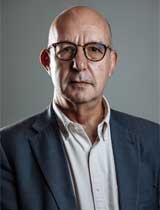
Richard Danziger
Director, International Organization for Migration (IOM) Regional Office for West and Central Africa, Senegal
Richard DANZIGER is the Regional Director for West and Central Africa of the International Organization for Migration (IOM) based in Senegal which covers 23 countries and 5 regional economic communities. Since joining IOM in 1994, he has served as Chief of Mission in Pakistan, Afghanistan, Indonesia and Sri Lanka & the Maldives and in different capacities in Rwanda, Democratic Republic of Congo, Philippines, Israel and the Occupied Territories. From 2005 to 2010, he headed IOM’s Counter Trafficking Division overseeing human trafficking projects and research throughout the world. He was a Chair of the World Economic Forum’s Council on Illicit Trade & Organized Crime and a member of their Council on Migration. He graduated from the University of Virginia where he studied drama and comparative literature.
Topic presented: Interlinkage between migration and (the lack of) good governance: Experience from the West and Central Africa region
The lecture revolves around one of the under-explored major factors which causes people to move from their countries - poor governance including corruption. Richard supports the existing research done on this issue with real-life examples mainly from West African countries where young people complain about deteriorating quality of education and health care system, lower investment in job-producing sector, or inability to employ themselves without having proper contacts, good ethnicity or resources to pay a bribe. He discusses the role of free and fair elections and scale in which democratically elected governments are responding to the people’s needs. He points out also the role of donor countries in this regard.
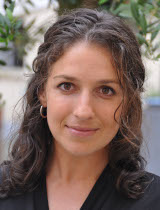
Melissa Siegel
Professor of Migration Studies, Maastricht University, The Netherlands
Melissa SIEGEL is a Professor of Migration Studies and Head of Migration Studies at the Maastricht Graduate School of Governance and UNU-MERIT where she manages several migration research projects, coordinates the Migration Studies Specialization as part of the Master’s Program in Public Policy and Human Development and formerly headed the Migration Management Diploma Program. She is Co-Director and heads the Migration and Development research theme of the Maastricht Center for Citizenship, Migration and Development (MACIMIDE). She currently holds the Chair of the UNU Migration Network and is a Research Associate at the Center on Migration, Policy and Society (COMPAS) at the University of Oxford. She is also on the advisory board of the Migration Policy Center, EUI and was formerly on the board of the Hague Process on Refugees and Migration. She has done visiting research fellowships at Harvard University, the Kiel Institute for the World Economy and the University of Oxford. She has advised, worked on or headed projects for Governments and International Organisations. She is also regularly involved in migration-related trainings for governments and organizations. She has also given advice at the United Nations and European Commission on migration issues. Her main research interest lies in the causes and consequences of migration with a strong emphasis on the linkages between migration and development.
Topic presented: Migration processes-corruption nexus and its implications for all parties involved/affected
The lecture unveils eleven key linkages between migration and corruption and debates if corruption facilitates irregular migration, enables protection of refugees, stimulates migration desires, impedes the development benefits of migration, discourages return migration or promotes the transnational ties of elites. Furthermore, Melissa discusses whether corruption is sustained by migration, whether social remittances reduce corruption, whether migration upends corrupt social structures and if corruption undermines assistance to migrants, as well as the transfer of corruption across borders. She defines what is corruption, its scale, methods, patterns, division according to sectors, while using examples from the practice.
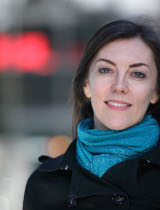
Vicki Squire
Professor of International Politics, The University of Warwick, United Kingdom
Vicki SQUIRE is Professor of International Politics at the Department of Politics and International Studies, University of Warwick. Her research cuts across the fields of border, migration, citizenship and critical security studies, and she is author of The Exclusionary Politics of Asylum (Palgrave, 2009) and Post/Humanitarian Border Politics Between Mexico and the US: People, Places, Things (Palgrave, 2015). Professor Squire is also Editor of The Contested Politics of Mobility (Routledge, 2011), and is currently completing two monographs on the ‘Mediterranean migration crisis’. She is a frequent contributor to The Conversation and openDemocracy, and tweets @vidkowiaksquire
Topic presented: Securitisation and politicisation of migration
The lecture is devoted to defining and examining securitization and politicisation processes as well as their mutual relation. Vicki considers the impacts of securitization and politicisation at multiple levels (with primary focus on Europe from 2015) - within high level politics and on public responses to migration. Based on real-life examples, she explores the securitisation of (irregular) migration and its different modes: migration and terrorism linkage, military and intelligence based action, emergency and anticipatory interventions. She discusses whether securitisation of an issue can become cumulative over time as well as how desecuritisation works.
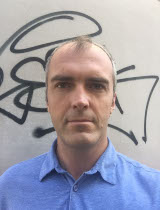
Andreas Fraunberger
Media theorist, Lecturer at the University of Applied Sciences Vienna, Austria
Andreas FRAUNBERGER is a producer for extended reality experiences and interactive media. Media theorist, lecturer at the University of Applied Sciences Vienna. Managing Partner of Junge Römer Creative Production Studio, Vienna (https://www.jungeroemer.net). Accounts: ProSieben Sat.1 Media Group Munich, Red Bull TV, Vienna State Opera, ORF, ARTE, Tyrol Tourism Advertising Board etc.
“Together with my team from Junge Römer I create interactive virtual realities that capture the minds and hearts of the audience with state-of-the-art 3D animations, spatial audio and exciting stories. Immersion and engagement are essential, not only for entertainment purposes, but also for sales presentations and training. Quality virtual reality content enables you to tell the most personal stories and create empathy.”
Presented Escape Velocity Visual 360º Reality: https://www.jungeroemer.net/escape_velocity/
During breaks and lunch time, participants could experience virtual 360° reality stories where they could put themselves into minds and shoes of refugees. They could for example listen to Emran (19) who came from Afghanistan to Austria in October 2015 because there are no bombs exploding there or little Baharak (8) who fled from Iran with her parents and has no choice but to translate for her parents, in all kinds of situations. Andreas answered questions on the spot during the first seminar day. The project is funded by the Wirtschaftsagentur Wien. Devices were kindly provided by the UNHCR Austria.
DAY 2, 21 August 2019

Melissa Siegel
Professor of Migration Studies, Maastricht University, The Netherlands
CV - see above
Topic presented: Changing the (public) narrative on migration and debunking migration myths
The lecture outlines myths and misconceptions around who is (perceived) a migrant, migration trends, migration-development nexus, effects of migration and migration policies. Melissa debunks the following myths and thinks of ways to change the current migration narrative: migration is at an all time high
and accelerating fast; most migration is from developing countries to developed countries; refugees are mainly hosted in developed (European) countries; poverty is the main cause of South-North migration; development (aid) will reduce migration. She also discusses misconceptions about immigrants taking jobs from natives, reducing the wages of natives or causing more crime, and challenges statements that migration policies have become more restrictive and migration restrictions reduce migration.
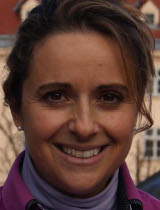
Blanca Tapia
Programme Manager at Communications and Events Unit, European Union Agency for Fundamental Rights (FRA), Austria
Since July 2016, Blanca TAPIA is the Programme Manager at the EU Agency for Fundamental Rights (FRA) one of the EU’s decentralised agencies set up to provide expert advice to the institutions of the EU and the Member States on the fundamental rights of people living in the EU. Previously Blanca Tapia worked as FRA Spokesperson/Media Manager, directly working with journalists on issues such as hate crime, racism, xenophobia, migration, gender equality, access to justice, LGBTI rights, and information society and privacy. She was as well Spokesperson for Combating Human Trafficking in the Organization for Security and Co-operation in Europe (OSCE), and press officer at the Spanish Ministry of Defence. She started her career as broadcast journalist in the USA and then in Spain.
Topic presented: Communicating human rights in migration context
The lecture provides list of communication know-hows in the field of human rights and migration topics. Blanca presents ten keys which communicators and practitioners should use to effectively talk about human rights and take lead in interpretation of available facts as well as to create hope-based communication strategy. She also introduces FRA’s recently published e-Media Toolkit to support quality journalism in Europe. She explains why framing of the topic matters in the current online era where people have limited time for receiving information.

Vicki Squire
Professor of International Politics, The University of Warwick, United Kingdom
CV - see above
Topic presented: (Anti)smuggling from a migratory perspective
The lecture unpacks smuggling and looks at related nuances through testimonies of people making journey across the Mediterranean in 2015 and 2016 (focus on the central and eastern Mediterranean routes). Vicki provides a brief summary of EU anti-smuggling in terms of policies and politics. She considers anti-smuggling from a migratory perspective and assesses the direct impact of the EU policy agenda on people on the move. She reflects on the problems of anti-smuggling in relation to the first-hand narrations of smuggling experiences stemming from 257 in-depth qualitative interviews.
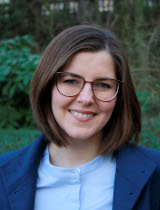
Kathrine Jensen
Policy Analyst, EU Policy Lab of the Joint Research Centre, European Commission, Belgium
Kathrine JENSEN is a Policy Analyst at the European Commission’s science and knowledge service, the Joint Research Centre (JRC). She has recently contributed to the report "Demographic Scenarios for the EU – Migration, Population and Education" which examines possible future scenarios for the EU and its population based on demographic and migration trends. With the EU Policy Lab, she has worked with the scenario-based engagement tools 'Migration Toolkit' to facilitate future-oriented discussions with policymakers and various other stakeholders. Kathrine has a background in communication and holds an M.A. in European Studies from the University of Göttingen and the University of Deusto, where she focused on the external dimension of EU's migration policy.
Leading facilitator: Scenario Exploration System role-play workshop exercise on the topic: Migrants journeys and the role of policies
Publication n. 1: The future of migration in the European Union: Future scenarios and tools to stimulate forward-looking discussions
Publication n. 2: Migration discussion toolkit elements
The activity is supposed to help to put oneself in a position of a person who is deciding on his/her future within certain local, regional, or global socio-economic context, whether to opt for the migration as a life strategy. It is also seeks to point out the intended and unintended impacts of migration policies on migrants’ decision making and others involved. The activity is focused mainly on the decision-making processes, i.e. the chain of thoughts that precedes leaving the country of origin. This workshop exercise was adjusted for the seminar pruposes by the International Organization for Migration (IOM) Slovakia.

Richard Danziger
Director, International Organization for Migration (IOM) Regional Office for West and Central Africa, Senegal
CV - see above
Topic presented: Categorization of migrants
Instead of categorising migrants theoretically, the lecture uses regional mobility mapping in West and Central Africa to show the complexity of human movement and scale of mixed migration in various world regions. Richard focuses on defining international migration and informing about migrant populations in the region of more than twenty countries, migration flows, labour mobility, transhumance and inter-regional trends. He identifies main areas of origin of migrants heading towards Libya or Niger as well as main areas of origin of migrants assisted to return and areas of ongoing conflict, violence and insecurity in the region. He then explains how IOM is assisting migrants stranded in Libya, Niger, Mali, Mauritania and Burkina Faso to voluntarily return home.
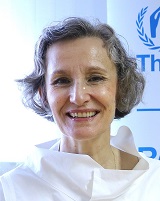
Montserrat Feixas Vihé
Regional Representative for Central Europe, United Nations High Commissioner for Refugees (UNHCR), Hungary
Montserrat FEIXAS VIHÉ is UNHCR’s Regional Representative for Central Europe. She has been based in Budapest since July 2013. She is responsible for the overall formulation, coordination and management of UNHCR’s operations in Bulgaria, Croatia, the Czech Republic, Hungary, Moldova, Poland, Romania, Slovakia and Slovenia, and she leads the policy dialogue and advocacy on refugee issues and statelessness with these Governments. Ms. Feixas Vihé joined UNHCR in 1984 as an Education Officer in Gedaref, Sudan, and since then she has held different posts in UNHCR’s missions in Honduras, Pakistan, Uganda and India, as well as at UNHCR’s Headquarters in Geneva where she has been responsible for operations in the Middle East and in Central America and the Caribbean. Immediately before being appointed as Regional Representative for Central Europe, she was Chief of Mission at UNHCR’s Office in New Delhi, India, for five years.
In 1993-1994 Ms. Feixas Vihé was based with the World Bank in Washington DC where she worked on health, education and nutrition programmes for Central America, and in 2002 she was seconded to United Nations Development Programme (UNDP) in Islamabad to develop a special programme for the development of refugee hosting areas in North West Pakistan. Montserrat Feixas Vihé holds a Bachelor Degree in Political Science from Geneva University, a Master’s Degree in Public and International Affairs from Princeton University and a PhD in Geography from the Autonomous University of Barcelona.
Topic presented: Global trends in forced displacement and solutions to current situation in the Mediterranean
The lecture refers to UNHCR’s annual publication Global Trends and is built around acknowledging that the main driver for human movement is survival. Montserrat summarizes most striking aspects of migration nowadays in comparison with past decades and outlines possible solutions to the situation in the Mediterranean. She explains why population movements are growing and are unstoppable as well as ways to manage them globally. She discusses in detail the impacts of globalization, lower travelling costs, mixed nature of migration flows and reasons to migrate, increasing xenophobia, political polarization of societies and blurring migration terms.
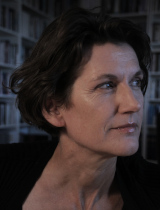
Janne Teller
Author of the book “War, what if it were here?”, Denmark
Janne TELLER is a Danish novelist of Austrian-German background. Her literature, that also includes essays and short stories, has received numerous literary awards and grants, and is today translated into more than 30 languages. Always confronting the larger philosophical questions of life and modern civilization, her books often spark controversial debate. She has published i.a., the novel Odin's Island (1999), a modern Nordic saga and parable of political, historical and religious dispute, Europa, All that you Lack (2004) about the significance of history in war and love, Come, an existential novel about ethics in art and modern life, and most recently the novella African Roads (2013), and the short story collection Everything (2013). She has also published the existential YA/crossover novel Nothing (2000) which was first banned, then has become an international bestseller, winning numerous international prizes and is today by many critics already deemed a modern classic. Her unique passport-shaped book War, what if it were here (2001) about life as a refugee, she transforms to each country in which it is published - by now 16, and still growing. Janne Teller has published a number of essays and short stories in Danish and International newspapers and magazines, such as Frankfurter Allgemeine Zeitung, Lettre Internationale and PEN Atlas - and often participates in the international public debate. Together with six other authors, she instigated the 2013 worldwide campaign 'Writers Against Mass Surveillance', and in June 2019, she instigated the successful women writers campaign for more women at the top of the European Union. Since 2014, she has been a member of the Jury for the prestigious German Literature Peace Prize. In December 2016, Janne Teller was designated European Cultural Heritage Ambassador by Germany. Originally educated a macro economist, Janne Teller has lived and worked with conflict resolution and humanitarian issues all over the world, in places as diverse as Tanzania, Mozambique and Bangladesh. In 1995, she left her professional career with the United Nations to concentrate fully on her literature. She has lived for years as an international nomad between Paris, Milan, New York, Elsinore, Berlin and other cities.
Host of the EMN Discussion evening

Richard Danziger
Director, International Organization for Migration (IOM) Regional Office for West and Central Africa, Senegal
CV - see above
Host of the EMN Discussion evening

Bernard Priecel
Director of the Slovak Ministry of Interior’s Migration Office
Bernard PRIECEL is the Director of the Migration Office of the Ministry of Interior of the Slovak Republic. He has been working in the Migration Office since 1995; he has held the position of the Director since 1999. Prior to that, he served in several positions at the Office of the Minister of Interior of the Slovak Republic. He lectured at the University of Economics in Bratislava and Faculty of Health Care and Social Work of the Trnava University.
Host of the EMN Discussion evening

Svetozár Sprušanský
Director of the theatre play HOME (where is yours?)
Svetozár SPRUŠANSKÝ is a Slovak theatre scholar, dramaturg and director. Since 2017, he works as an in-house dramaturg of theatre Nová scéna in Bratislava, where he regularly performs as a sucessful theatrical director. At the same time, he directs a private Comedy Theatre. In years between 1995 and 2007, he has worked as a dramaturg and theatrical and artistic director of Andrej Bagar Theatre in Nitra. For twentytwo years, he has been creating incredibly sucessful productions and co-forming an image of this theatre. Svetozár has graduated in Culture and Aesthetics from the Faculty of Philosophy of the Comenius University and in Theatre Studies from the Department of Drama and Puppetry of the Academy of Performing Arts in Bratislava.
Svetozár has been awarded the highest award of Slovak theatre criticizm Dosky for the inscenation and direction of play Tri sestry (Three Sisters). His aim to bring the original Slovak theatral classics closer to the audience in a monothematic season called The family silver at Andrej Bagar Theatre has been rewarded by another Dosky award in the category of Discovery of the season (2008). Svetozár is holder of ten Literary Fund awards and six Literary Fund considerations for the direction and dramaturgy in the area of theatre and broadcasting.
As an author of the project targeted on youth audience Ty kokso in the Andrej Bagar Theatre, he has been acting as the dramaturg and director of plays dealing with the issues youth are facing today, such as cyber harassment, intergenerational relations, faith seeking, and self-abuse. The dramaturgical narrative called Youth Nová scéna of the Nová scéna theatre is carried in a similar vein, it aims to reflect the problems that the contemporary teenage generation is facing. The perfect instances of such plays are Punk Rock by Simon Stephens, dealing with the violence against children and adolescents by their own peers, or dramaturgical portrayal of the novel Home – Where is yours? by Janne Teller, dealing with the issues such as migration, loss of home and loss of identity. All performances are adapted in a cooperation with professionals in a given area and with institutions that organize expert-led discussions with the audience after the performance.
Host of the EMN Discussion evening
DAY 3, 22 August 2019
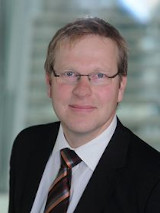
Mathias Czaika
Head of Department for Migration and Globalization, Danube Krems University, Austria
Mathias CZAIKA is a Professor in Migration and Integration and Head of the Department for Migration and Globalization at Danube University Krems, Austria. He is also Research Associate at the Department for International Development and former Director of the International Migration Institute, both at University of Oxford. His research interests include; drivers and dynamics of international migration processes; globalization, development, inequality, and conflict; heuristics and decision-making; migration policy formation and policy impact; migration of high-skilled workers, asylum seekers and refugees. He has published in journals such as Demography, Population and Development Review, International Migration Review, or the Journal of Peace Research. He has a PhD in Political Economy from the University of Freiburg.
Topic presented: Migration in the context of globalization, development and inequality
The lecture seeks to explain why in a global context of rising inequality, development discrepancies and environmental stress, a surprisingly small number of people are becoming migrants. Mathias discusses shifts in global income distribution and poverty, potential versus actual migration as well as the reasons of non-migration (trapped and voluntary immobility). He introduces the scale of the global migration potential based on monetary, but also on broader development and human indicators (access to basic drinking water services etc.).
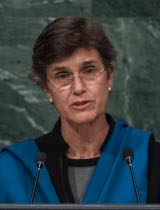
Jill Helke
Director of International Cooperation and Partnerships Division, International Organization for Migration (IOM) Headquarters, Switzerland
Jill HELKE has worked for International Organization for Migration (IOM) since April 1999 and is currently the Director of the Department of International Cooperation and Partnerships at IOM Headquarters in Geneva. She worked in the Office of the Director General from 1999-2009 and was Chief of Mission for IOM in Sudan from 2009 to 2012. Before joining IOM, she was in the British Foreign Service from 1978 to 1999, serving at the Foreign and Commonwealth Office in London, the British Embassy in China, and the UK Missions to the United Nations both in New York and Geneva.
Topic presented: Relationship between migrants and the cities in the urbanising world
The lecture addresses the role of sub-national governments, particularly city mayors and local authorities, in trends of migration and urbanization. Jill mainly responds to why cities have become prominent actors in migration discourse and what challenges and opportunities migration brings to cities. She also outlines good or innovative practices emerging in different regions of the world in terms of cities’ leadership role and engagement. In the end answers how the growing importance of cities affects research, migration policies and migration governance debates.
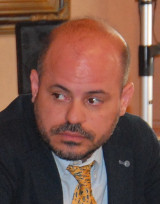
Lefteris Papagiannakis
Vice-Mayor for Migrants, Refugees and Municipal Decentralization, Municipality of Athens, Greece
Lefteris PAPAGIANNAKIS has been elected as a member of the Municipal Council of Athens in September 2014 and was named vice mayor on migrant and refugee affairs in March 2016. He is the chair of the working group Migration and Integration of the Eurocities Network, vice President for Refugee Issues of European Coalition of Cities against Racism (ECCAR) and president of the Council for the Integration of Migrants of the Municipality of Athens. He was born in France in 1971. He completed his primary and secondary education in Greece. He returned to France to study public law in the University of Lille II, followed by a DEA in European Community Law and International Economy. After the completion of his studies he worked in the European Parliament as a parliamentary assistant. Since then he also worked on the education of the muslim minority in Greece (in Thrace), as a legal counselor for the political party Ecologists Green and the Special Secretariat on environmental inspection.
Topic presented: Roles and needs of European cities in managing migration at local level
Based on the migration and refugee reality of 2015 and the 10-year financial crisis, the lecture focuses on steps the City of Athens took to deal with rising numbers of asylum-seekers entering Greece and its capital. Lefteris points out how the City was ensuring provision of services to its new inhabitants and social cohesion – from administrative reform through engagement between local authorities and humanitarian actors in Athens to cooperation with the private sector and civil society. He also introduces the main pillars of the City’s strategic plan for integration as well as how innovation can promote social inclusion and local governance.
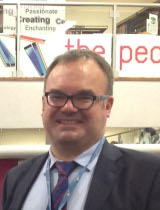
Peter Barnett
Head of Libraries, Advice, Health and Information Service, Coventry City Council, United Kingdom
Peter BARNETT has led Coventry’s Library and Information Service since 2014. He has been responsible for transformation of Coventry libraries as part of the wider Connecting Communities programme. He also leads on the Council’s work in migration, as well as commissioning external advice services. Coventry became one of the first authorities to respond to the refugee crisis in the Middle East in 2014. To date, the City has received more than 600 refugees. The Council works in partnership with both statutory and voluntary sector agencies to meet the housing, health, educational and social needs of some of the most vulnerable refugees fleeing from conflict and seeking a place of safety. Stimulated by the positive impact of this work, Coventry has been successful in securing EU funding for the MiFriendly Cities project and the CMF-funded Building Bridges project. Together, these initiatives celebrate the contribution refugees can make to their new home City, helping them develop and broaden their skills whilst also promoting dialogue and shared understanding with established communities. Having worked at the Council since 2003, Peter’s previous role was as manager of the Health Development Service which focused on lifestyle and behavioural change and combatting long term health inequalities through the promotion of healthy eating and increased levels of physical activity. Prior to relocating to Coventry, Peter worked for Middlesbrough Council and North Yorkshire County Council.
Topic presented: Migration in the United Kingdom and Coventry – MiFriendly City regional initiative for migrants and refugees
The lecture covers the United Kingdom’s City of Coventry current migration and integration activities, including those within the Building Bridges project and the bigger regional project with Birmingham and Wolverhampton. Peter talks abouts Coventry as the City of Sanctuary and International City of Peace and Reconciliation which engaged in the resettlement of Syrian refugees back in 2013. He introduces libraries as a key part of the support for refugees and newly arrived communities. He mentions also some of the other specific interventions which Coventry, being the 11th largest city in the United Kingdom developed over the last few years.

Kathrine Jensen
Policy Analyst, EU Policy Lab of the Joint Research Centre, European Commission, Belgium
CV - See above
Topic presented: Demographic scenarios for the EU: migration, population and education
In the lecture, Kathrine presents the main findings of the Joint Research Centre’s recent report “Demographic Scenarios for the EU: Migration, Population and Education”. The report aims to respond to the questions raised in the wake of migration situation in 2015 about how increased influx of migrants could impact the future of European demography. Kathrine takes several projections to show if immigration can prevent population ageing in the EU and discusses the impact of economic integration of foreigners on EU labour-force dependency ratio. Afterwards, Kathrine highlights also which migration drivers can play a role in changing world demographics, particularly when it comes to rapid population growth.

